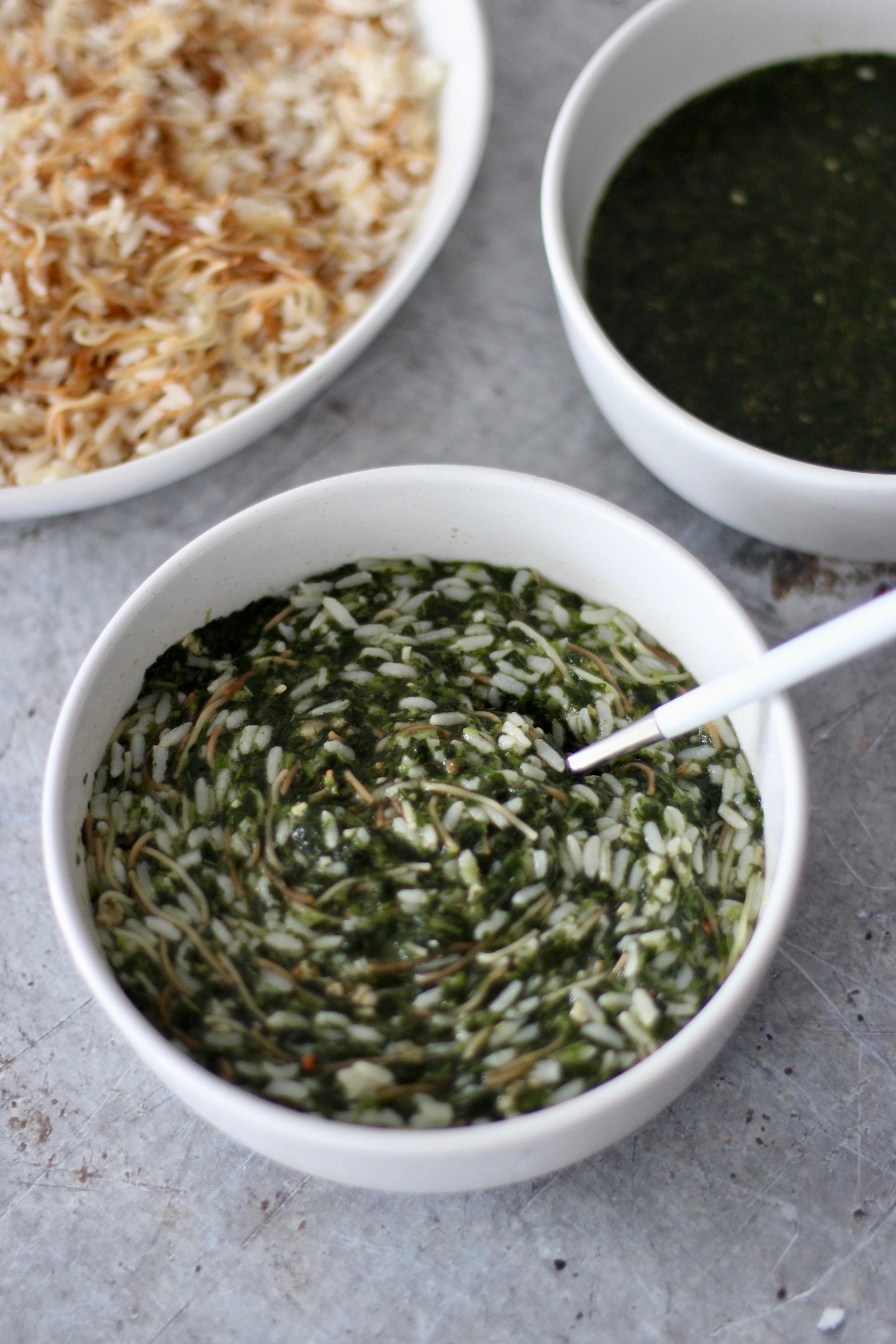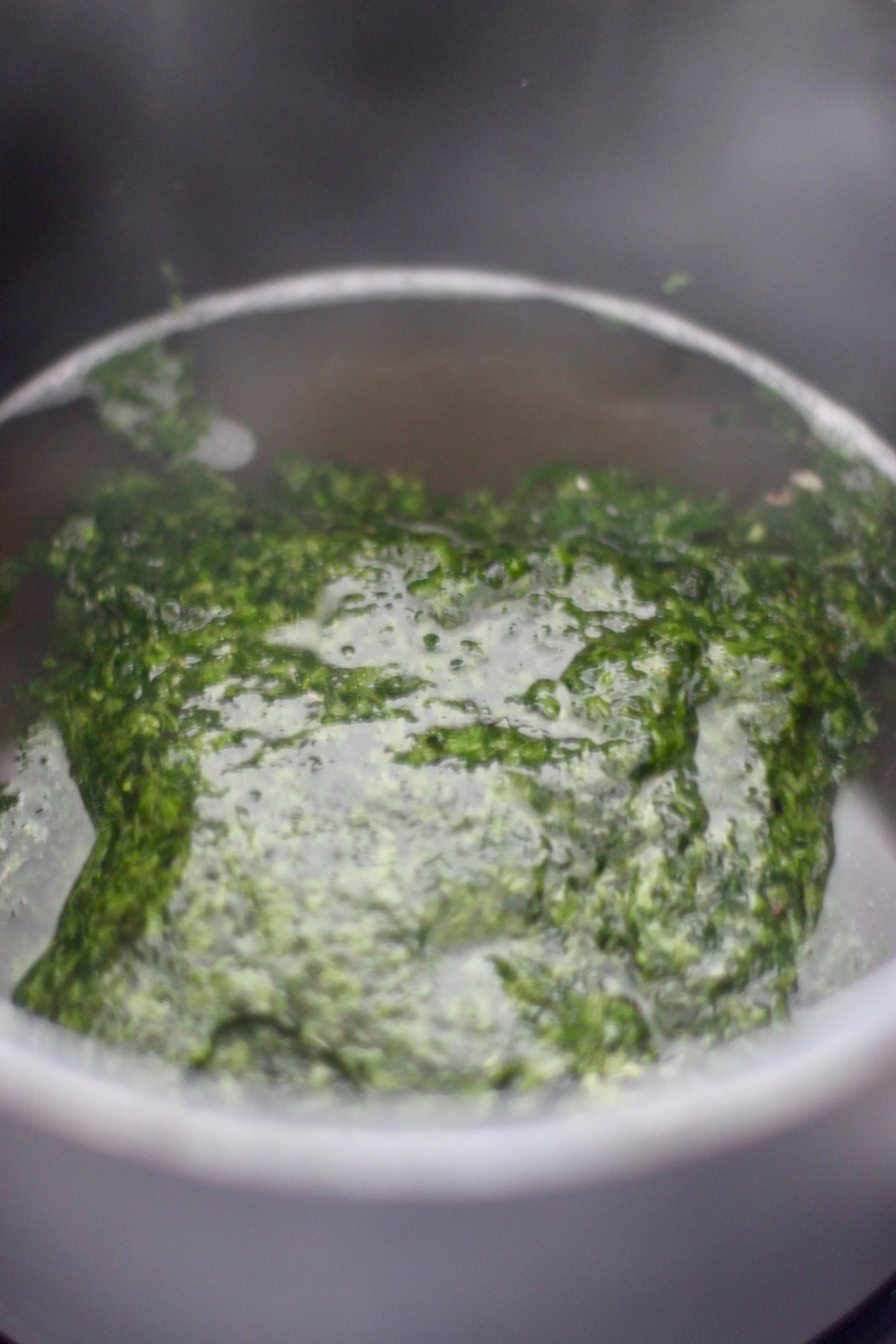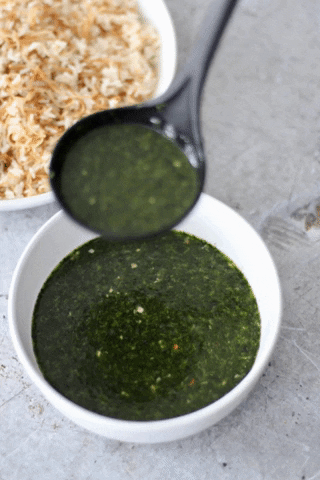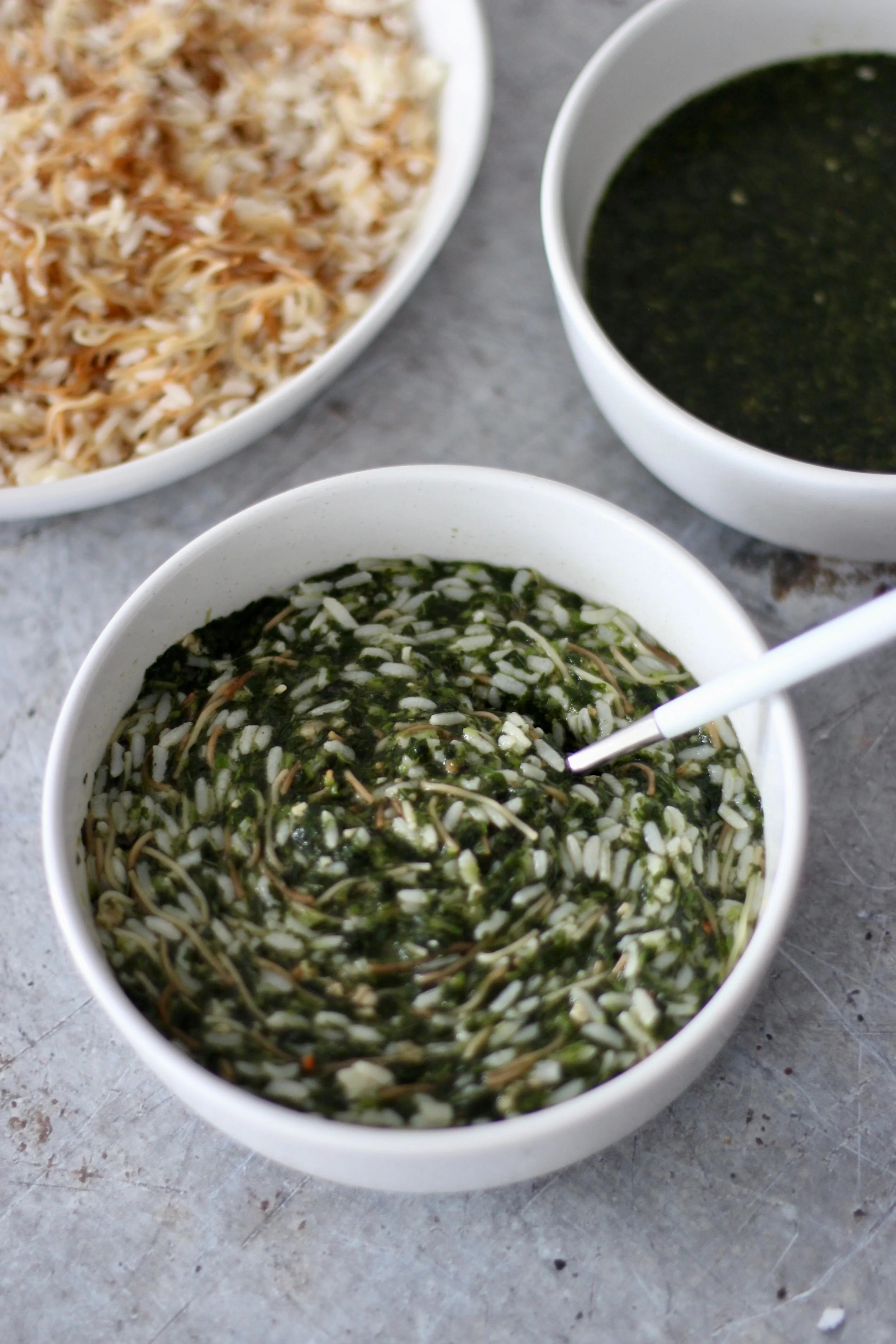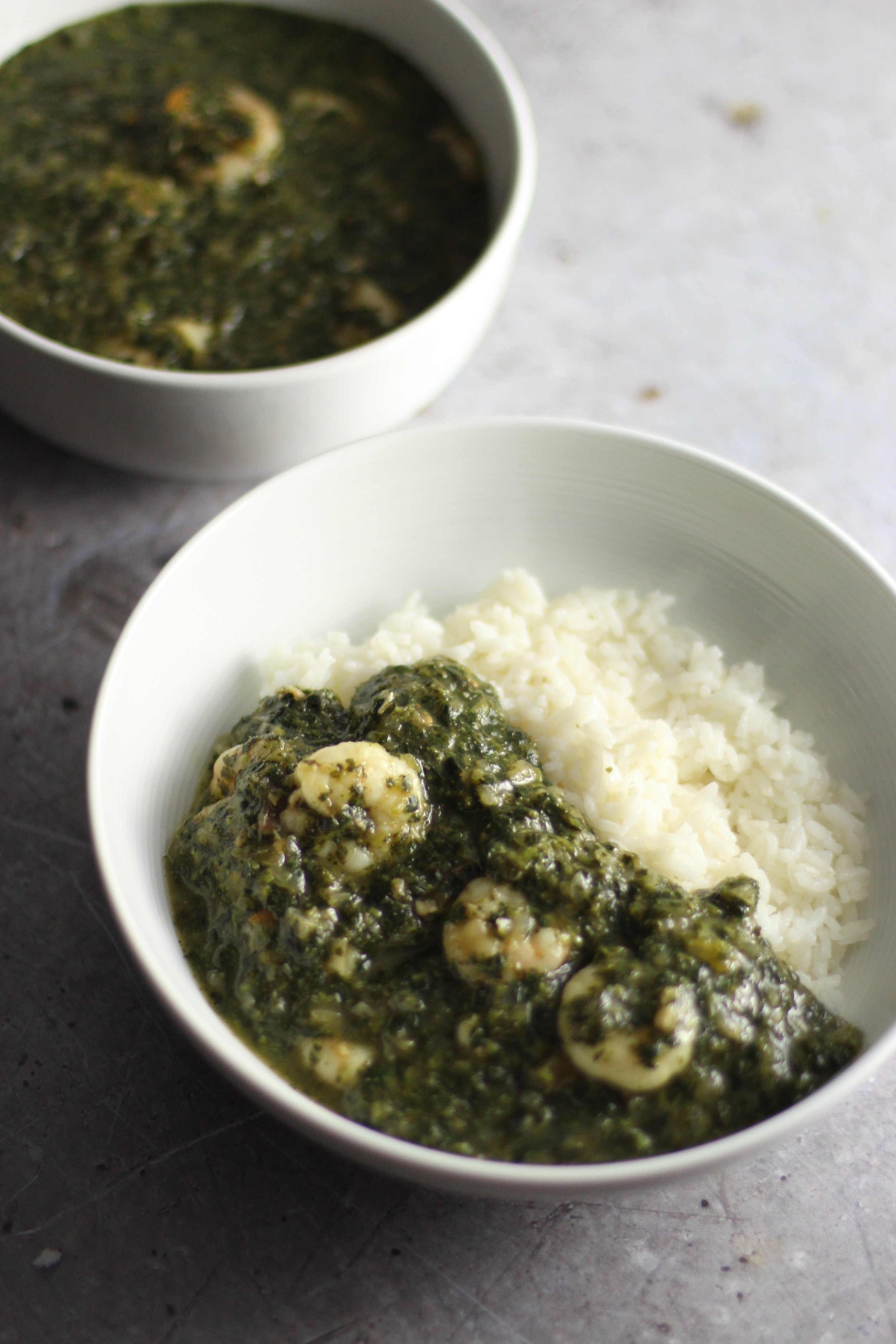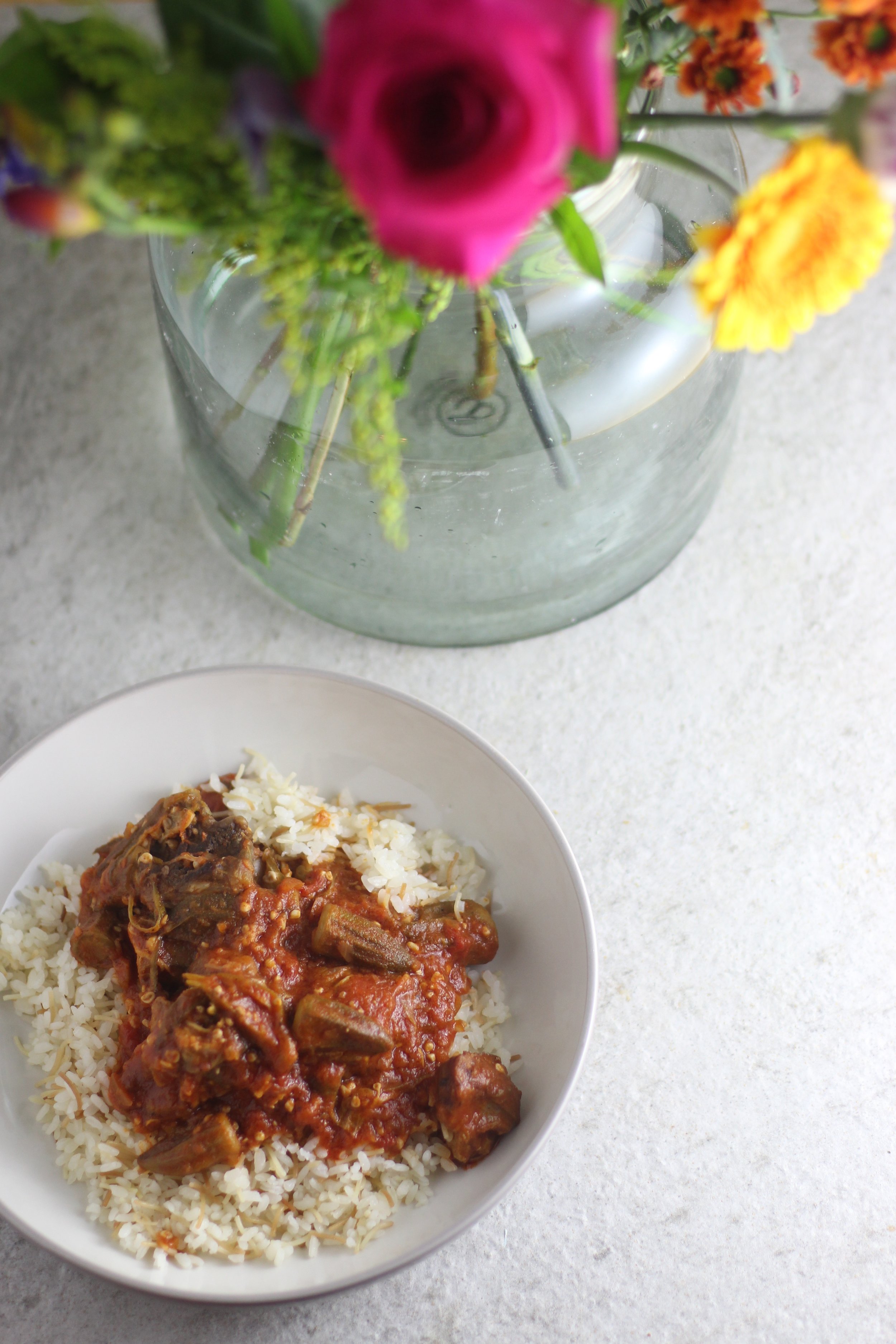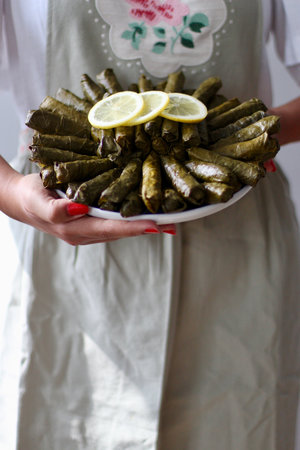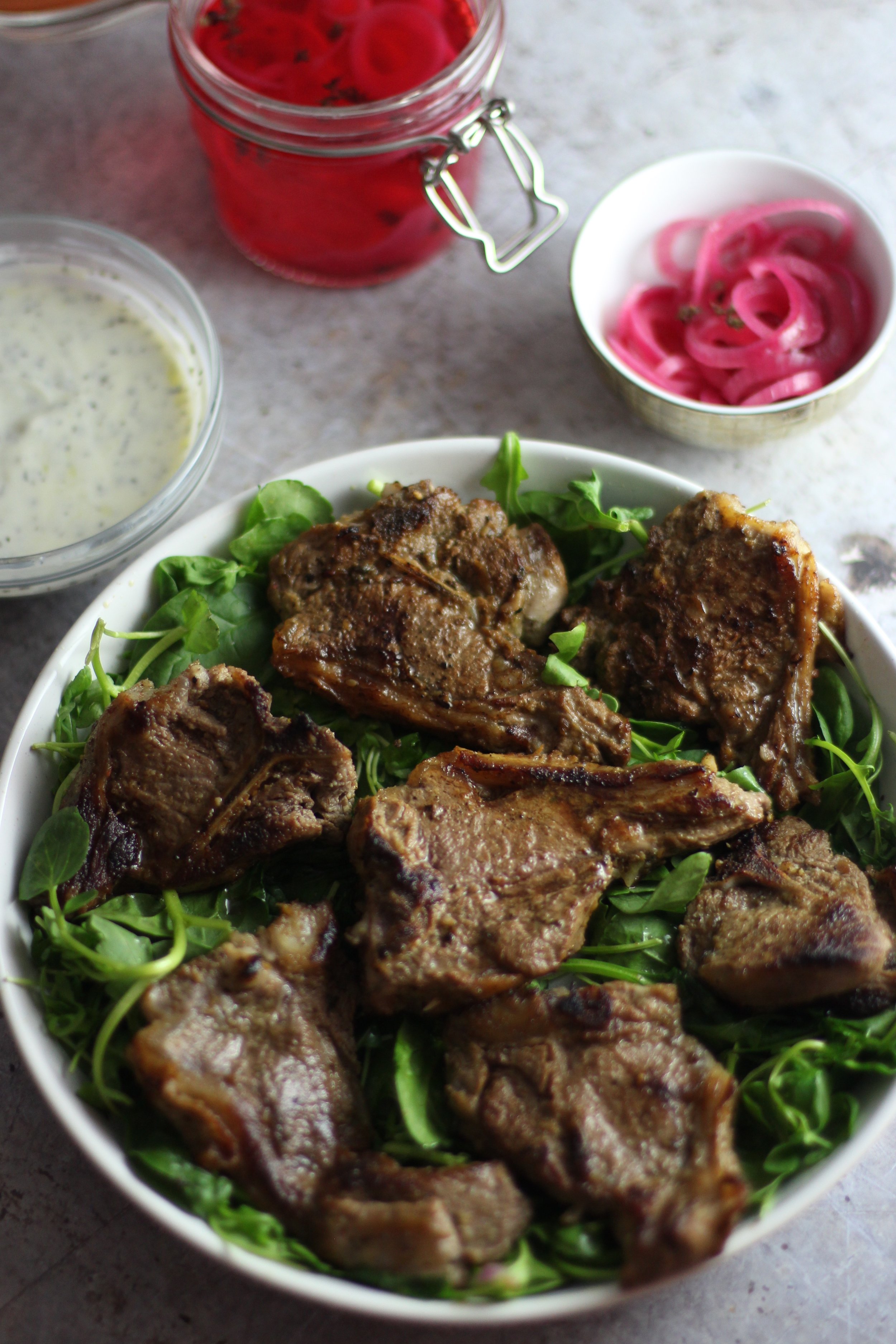Egyptian molokheya
I shared how to make classic Egyptian rice with Vermicelli recently but we can’t have rice without molokheya!
Molokheya is a super nutritious soup made from jute leaves (high in vit A, C, iron and calcium!) and traditionally eaten with rice and grilled chicken (childhood flashback!). It’s quite a mild soup so most of the flavour comes from the ‘adha’ which is garlic and coriander fried in ghee and added at the very end.
This recipe uses frozen molokheya because it’s what is most commonly found abroad, but once I find fresh leaves near me, I’ll write an update. If you know where to find the leaves in London, hit me up!
Frozen minced molokheya
The ‘adha’
I tend to use the brand ‘Basma’ when I can (not sponsored, just the one I found best). A couple of things to keep in mind to avoid the molokheya from splitting.
✖ Don’t cover while cooking
✖ Don’t leave a spoon or utensil in the molokheya
✖ And lastly, avoid over-boiling or cooking for too long, the whole thing should take 15 minutes tops!
Have you heard of the old wives' tale where you should gasp loudly while adding the ‘adha’ into the molokheya? Leave a comment below and let me know if you know the story behind it! 👇🏾
Recipe
Molokheya
300ml or 1 1/2 cups beef stock (vegetable stock for a veggie option)
1 packet (400g) frozen minced molokheya
1 tsp salt
Adha:
1 tbsp ghee
6 garlic cloves, minced
2 tsp ground coriander
Directions
In a deep casserole (18cm) add the stock and bring to a boil. Once it starts to bubble, add the molokheya submerging it fully into the stock.
Bring the heat down to medium-low and stir for 5-7 minutes until the molokheya is completely defrosted and soup-like. Add salt and stir once more. Keep on a low heat making sure it doesn’t come to a boil.
In a small saucepan, make the ‘adha’. Melt the ghee on a medium-high heat then add minced garlic. Once it starts to gain colour, add ground coriander and fry until fragrant and browned.
Use a ladle and add a full ladleful of molokheya to the ‘adha’ then quickly add it all back into the molokheya.
Use the ladle to stir and check if you’re happy with the consistency. If it’s too thick, add a little more stock or water and if too thin, leave on medium heat until slightly reduced, again making sure it doesn’t reach a boil. Serve on a bed of rice or enjoy it by itself. Bel hana!
'Bel hana' is a shorter version of 'bel hana wel shefa' which roughly translates to 'with happiness and good health' and the Egyptian way of saying Bon Appetit.
Don't forget to use #EgyptianEpicurean and tag me in your creations on Instagram!

